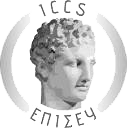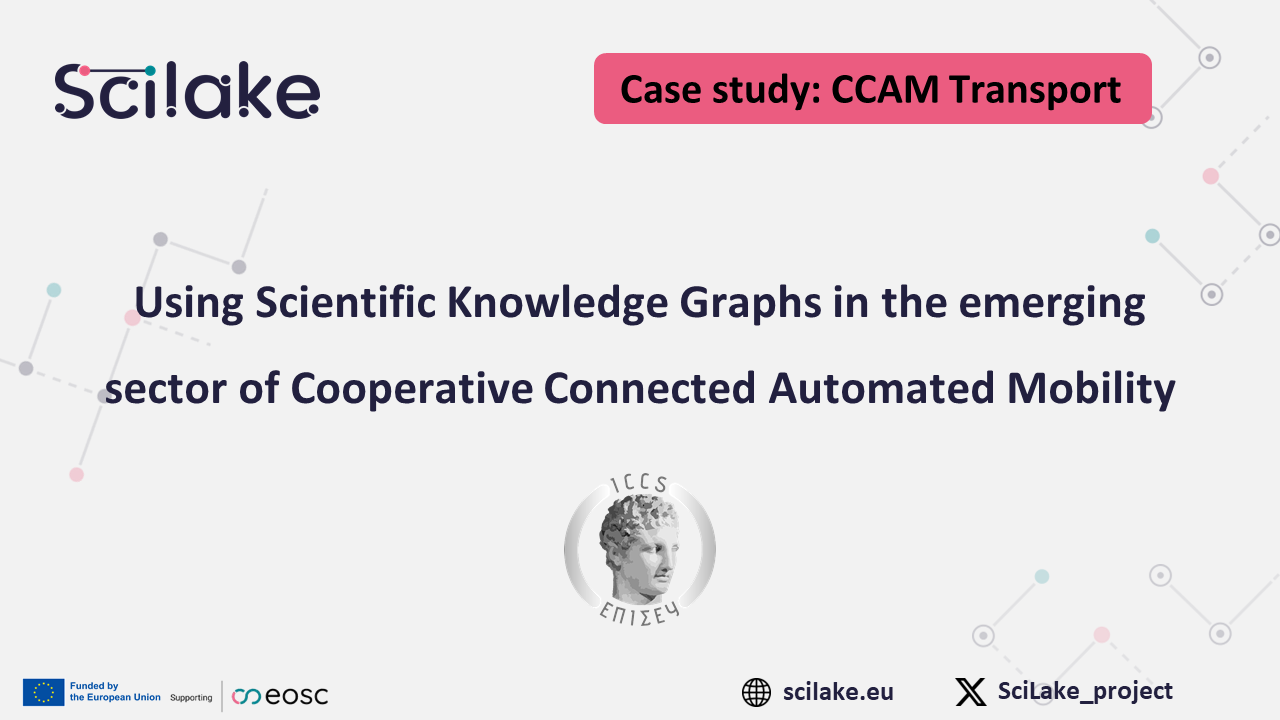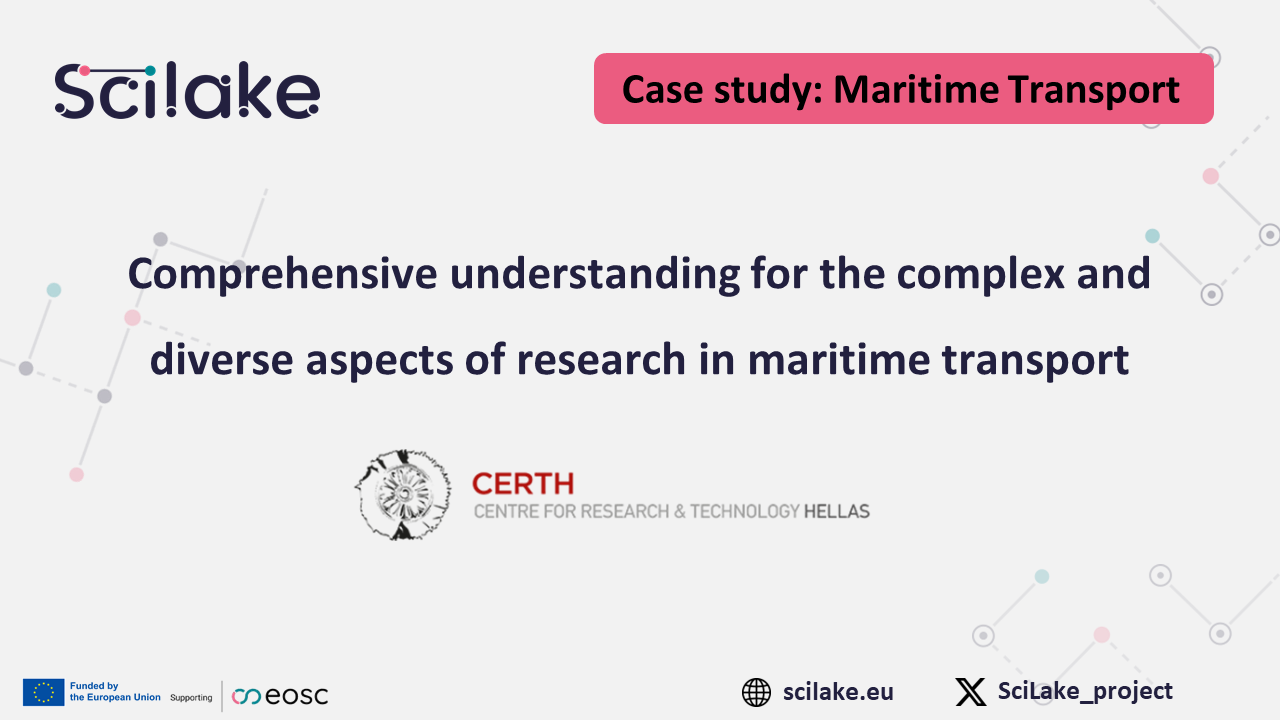CCAM Transportation
-
- Athanasios Ballis,
This email address is being protected from spambots. You need JavaScript enabled to view it. - Maria Tsirigoti,
This email address is being protected from spambots. You need JavaScript enabled to view it.
- Athanasios Ballis,
- CS Organisations:
- ICCS , CS Organisation Logo:
 , https://www.iccs.gr/en/?noredirect=en_US
, https://www.iccs.gr/en/?noredirect=en_US
- ICCS , CS Organisation Logo:
-
- Transport Research OpenAIRE Gateway, https://beopen.openaire.eu/
The CCAM (Cooperative Connected Automated Mobility) Transportation research pilot is being led by researchers at the Institute of Communication and Computer Systems (ICCS) in Greece. The main goal is to build an up-to-date database of scientific knowledge about CCAM, using research from European-funded projects and combining it with existing OpenAIRE resources.
The transportation research data in the BEOPEN (https://beopen.openaire.eu/) community portal provides a foundation; however, it needs significant updates to reflect the latest developments in CCAM technology. Due to the field's rapid evolution, terminology, methodologies, and research findings must be continuously updated. To meet this challenge, the pilot has integrated information from recent EU-funded projects like SINFONICA, ARCADE, and FAME. Using SciLake's advanced tools, the pilot analyses specific CCAM-related terminology and classifications from these projects. Our research team carefully reviews and refines this information to ensure accuracy and relevance.
The comprehensive update aims to achieve three key objectives: discovering previously unknown datasets, identifying significant research papers, and highlighting emerging trends in CCAM technology. This update will provide researchers with a more complete and up-to-date understanding of the field.
What we have achieved so far
The pilot has made significant progress in several key areas:
- Developed comprehensive Knowledge Space and Graph Data Model
- Enhanced the OpenAIRE "Transportation Research" Gateway with CCAM-specific content
- Established benchmarking framework using relevant publications
- Configured and tested SciLake components for optimal performance
Related News
- Press release: Guiding CCAM Research through Scientific Knowledge Graphs
- Workshop and Paper presentation at the 12th International Congress on Transportation Research 2025 "Fairness & Transparency in Transport Research", "Open Science in transport research: insights from the Maritime and CCAM pilot cases".


